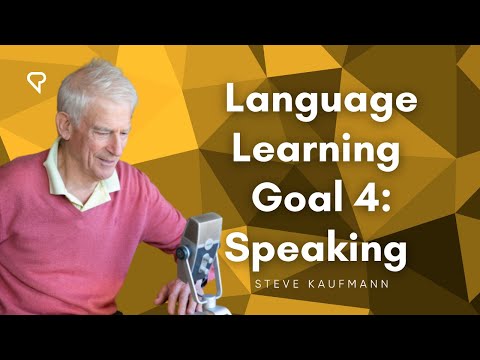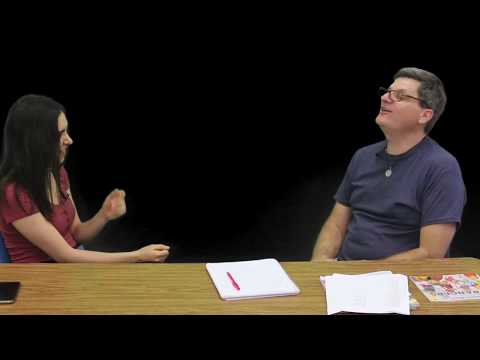So it seems a lot of language learners on here and elsewhere believe that you need a large amount of input before you can start “activating” the language and have enough vocab and sentence structures to really start practicing your speaking. For those of you who took this approach, what were some of your stats on here when you started to feel like you could converse in a basic but fluent way? How many known words, words read and hours listened?
I didn’t take this approach as I studied both of my languages in a school setting before, but this might provide some clarity: https://refold.la/roadmap/stage-3/a/starting-output
What do you mean by converse in a basic but fluent way? Your definition of this may be drastically different from others.
For me, conversation will not be all that interesting, if I can’t understand most of a typical conversation between natives, or even basic movie/tv level. I don’t feel like I have to speak at that level, but I feel like I should be able break into the conversation and ask a question or add something without sounding like it came from left field or totally off topic, or indicated I wasn’t really understanding what they are saying (unless I’m asking because I didn’t understand something =) ). I don’t necessarily need to understand EVERYTHING and I’m sure there would be some topics that I really may not know what they are talking about but still mostly follow along. That to me would be a very basic fluency. I don’t feel I’m there at 22,000 LingQ words and 300 hours listening.
Basic fluency to someone else might mean being able to order food, book a hotel, get/give directions, express basic feelings, talk about weather (Essentially A1/A2 level stuff). I don’t consider that basic fluency, but you might. That kind of stuff I could do at a much earlier level, albeit currently probably in a very hacked up kind of way, but I could get the job done (I barely practice speaking at this point, but have handled these or similar scenarios before). Even in these basic scenarios you can be thrown off if the native asks you anything that is “off script”. That’s where listening needs to the most important part of conversation.
In short, I don’t think you need to wait to speak or participate in conversation. That’s really up to you. Anything you do here is going to help your speaking ability. However, without enough vocabulary and listening practice, you are going to be super lost in any real native conversation. At least that’s been my experience. I feel like I could answer just about anything in some way, but I’m frozen up if someone asks me something or comments and I don’t understand what they just said…can’t speak then, other than to ask them to repeat, possibly slower. But if it’s vocabulary you don’t know then you’re somewhat stuck.
There are lots of discussions from years ago in the forums about this topic. I suggest you google some of your questions (write it in several different ways, cause, as you know, search engines aren’t great) with the qualifier site: lingq.com. Google the following:
Etc.
The actual answer to your question depends on several factors.
Firstly, you don’t just “speak with basic fluency” after X amount of input. You have a very solid foundation, but you will need to ‘activate’ it. I.e. turn your passive knowledge of words, phrases, structures, etc. into active knowledge. Just because you can understand nearly everything you hear, does not mean you can speak fluently. You’ve been practising going from TL → meaning, so you need to train your brain to go from meaning → TL. You do this by speaking/writing. It will not come straight away, but it will be a lot faster than if you followed the ‘speak early’ model of language learning.
Now the question is, how much input should you get before you start to focus on speaking, to ‘activate’ the language? Well, it depends. It depends on which language you’re learning (some languages express ideas in more words than others, etc.), the exact input you use (how much material is novel and how much are you repeating?), what languages you already know (any in the same language family or is your TL far removed from your known languages?), and how much time you have before you need to speak, etc. etc. And many other factors.
Steve mentioned recently that he used to wait until 10,000 known words before he would hire a tutor to start speaking. He said that he recently dropped that to 3,000-5,000 words. See video:
After this many known words (10K), you will not be ‘fluent’ in understanding the language. This is just when Steve starts the process of activating the language.
Personally, my main metric is not ‘known words’. I cannot control my known words. Sometimes I remember words, sometimes I do not. It’s not under my control. What I can control is the number of words I read and the number of hours I listen. Because of this, I prefer to follow my words read and hours listened.
You will get lots of other opinions and estimates from other forum threads you read, but my goal, at the moment, for Italian, is 1M words read and maybe 300+ hours listened. I’m guessing after this, I’ll have around a B1 level of comprehension in Italian. That is, I’d be able to pass the B1 reading and listening comprehension exam. Only a guess though. Truth be told, it doesn’t matter too much. If I can understand most YouTube videos without looking up too many words, it’ll be fine. These numbers are very good milestones though.
Note for German: You can get a rough estimate by adding up all the hours an intensive German language course takes to get to B2. This is just one I found online. (15 hours per week of class + 5 hours per week of homework) * (8 weeks for A1 + 8 for A2 + 8 for B1 + 12 for B2) = 20 * 36 = 720 hours. Just spend most of those hours with input and you’ll be more advanced than those coming out of the courses with B2 certificates.
Ah great link. Thank you. That’s the MattvsJapan site, right? Interesting ideas in that.
Wow, you have twice the input logged that I have. I do hope I’m closer to fluency by that point. The best way I can describe my recent attempts at talking on iTalki is “speaking pain”. Like trying to read material where you know less than 95-98% of the words and it’s slow and difficult.
I know there is no official specific definition of “basic fluency”. But I’d like to comfortably talk about my day, put things into simple sentences but strung together. Like a chatty 5 or 6 year old. They can’t talk about very complicated things but they can chat all day about what they’ve done, would like to do and describe the world around them in simple terms. They won’t debate philosophy with you or speak poetically. That’s my understanding of basic fluency.
Very interesting ideas in this. Thank you. I’m definitely low on the reading front compared to you. 1 Million words is one of my goals for this year though so hopefully that’ll help. I actually enjoy the input process more than speaking but am travelling to Germany in August so Speaking is now a priority.
I feel my iTalki lessons aren’t very productive because I just have to ask for words or constructions I don’t have yet. Seems inefficient and I don’t feel I’m getting any more fluent but I’ve only done 5 hours.
Ich schaue Ihre Statistik an. Bevor Sie LingQ verwendet haben, haben Sie schon Deutsch gelernt, oder?
5 Stunden sind nicht so viele. Wenn Sie in August nach Deutschland fahren, könnten Sie auch noch viel hören und lesen. Wenn Sie die Totzeit verwenden, hat man mit der Sprache sehr viel Zeit. August ist noch weit weg. Hoffentlich können Sie noch 80+ Stunden Input erreichen oder hoffentlich viel mehr.
Wie machen Sie Ihre iTaliki Klassen? Vielleicht sollten Sie über etwas einfacher sprechen?
You should focus on acquiring sentences in German that you need for dealing with your immediate needs while traveling within Germany. For example, ordering for a cup of coffee, bread and pastries etc. Visiting a pharmacy asking for a painkiller (Ibuprofen). It can be acquired without doctors prescription. When traveling in the train, the ticket checker will ask for your train ticket and your identity card, *Personalausweis". Also, you should focus on intensive listening as well in 2.5 months or so. Checking out Easy German videos on Youtube might be a good option. Good thing is, all Germans speak excellent English but try speaking in German as much as you can it will improve your confidence level.
Adding to what asad100101 said, they may start using English with you once they notice you are not from Germany, but ask if they’ll let you practice your German because you are trying to get better. Most will be cool with that (as long as you’re not talking about your life story with a service worker). This probably won’t work with the cashier at the grocery store =)
I’m jealous. I was actually supposed to be going to Germany Friday, but one of our cats is sick so I may need to stay back

